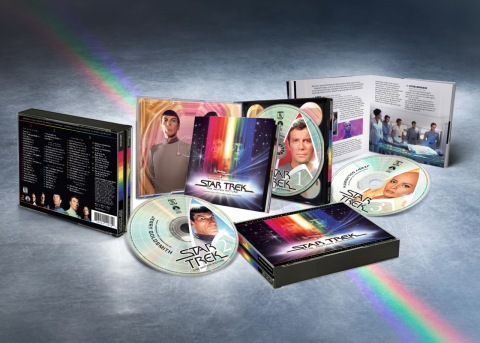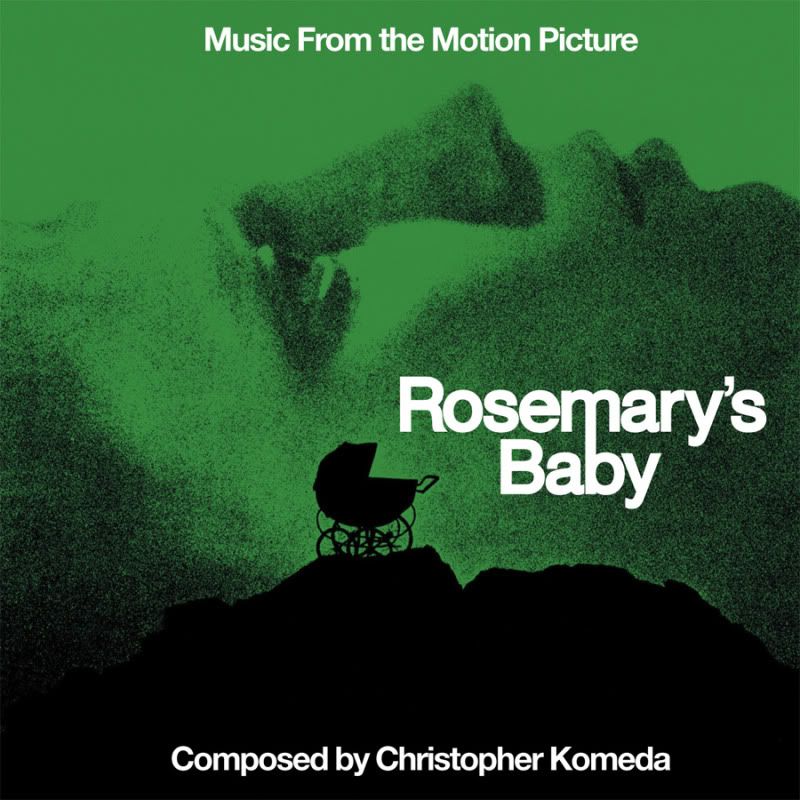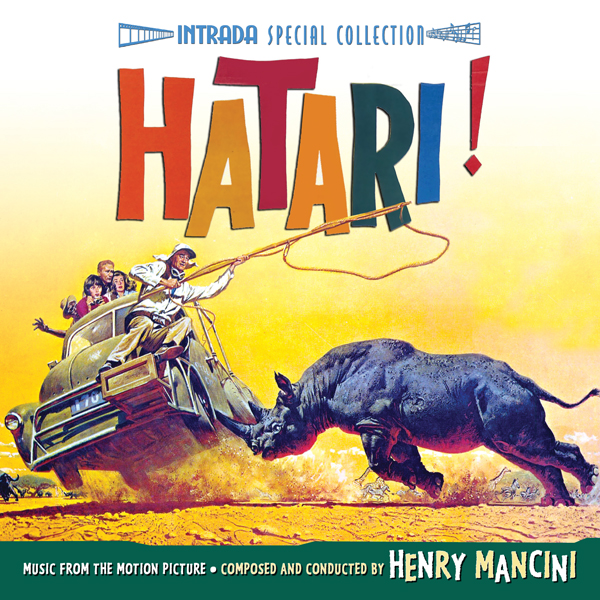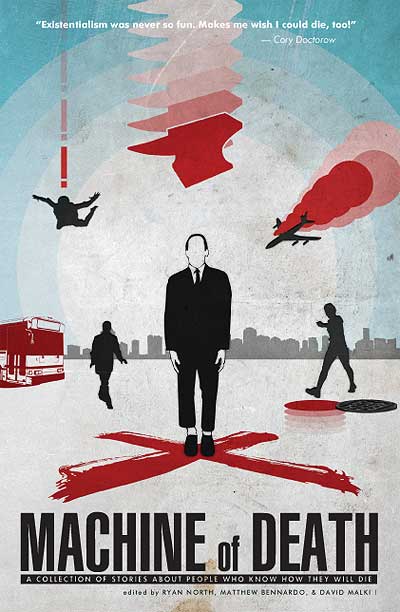Wednesday, July 11, 2012
Jawing About Jaws
Saturday, June 30, 2012
There Is No Comparison...
Earlier this month, La-La Land Records released a definitive 3-CD presentation of Jerry Goldsmith's score to Star Trek: The Motion Picture.
I met Jerry Goldsmith once, in 1998. Star Trek: The Motion Picture was the first score I asked him to autograph. He signed it vertically (along the center of the rainbow) rather than utilizing the more obvious giant white space beneath the Enterprise; Goldsmith was never one to take the obvious path!
For the emotions connected with it, that CD remains one of my most cherished possessions. I won't be listening to the physical disc again, however. In truth, I haven't since Columbia/Legacy released their expanded edition back in 1999. And now, that second release has been superceded. La-La Land's new set is utterly perfect. It contains everything I could want ... everything I could imagine. Under the sure hand of Michael Matessino, who also co-wrote the liner notes with Jeff Bond, and the rest of the LLL team, nothing has been left off; no expense spared; no aspect of the remastering neglected. Even the art design by Jim Titus is superlative. This is one of the best scores of all time. It now takes its place as one of the best and most comprehensive soundtrack releases of all time.
As the film's tagline boasted, there is no comparison.
Thursday, May 31, 2012
A Jazzy Month with Komeda and Mancini
I've been honored to contribute liner notes to two landmark releases this month! The first, which arrived just in time for Mother's Day, is La-La Land Records' definitive release of Krzystof "Christopher" Komeda's score to Roman Polanski's film of Rosemary's Baby. It's an iconic horror film, with a stunning jazz-based score. This is the premiere release of the complete film tracks, in addition to the album re-recording and double-sided single. My colleague, the very knowledgeable Scott Bettencourt, wrote about the film production and gave a bio of Komeda, while I wrote about the score's historical importance and did the track-by-track analysis.
The second release, just out this week, is Intrada Records' world-premiere presentation of the original film tracks of Henry Mancini's score for Howard Hawks' Hatari!. If you aren't immediately familiar with the title, it's best remembered for giving us the iconic tune "Baby Elephant Walk." The 1962 album is an indisputable classic, but it's also a re-recording which emphasizes Mancini's easy listening contributions. As originally written, the score has significantly more depth and variety. This CD is also a milestone in another way: it's the 200th release in Intrada's Special Collection line, and I'm thrilled to have been involved!
So what do these two releases have in common, other than great music and the involvement of producer extraordinaire Lukas Kendall? Tonally, they couldn't be more different. Rosemary's Baby contains some light pieces, but skews dark and disturbing. Hatari! balances fun and whimsy with a more serious side, but in a mystical and reflective way. The two scores' main kinship is that they are works by prominent jazz musicians, applying their craft to film in innovative and unconventional ways. I can't recall anyone marrying original jazz and horror quite like Komeda; and Mancini's elegant mood-based approach represented a significant shift away from the traditional Hollywood sound for adventure pictures. (Hawks fired Dmitri Tiomkin from the film for that very reason!)
In summary: two very different scores, sharing a certain artistic significance, and both of them certified classics of their respective genres. It's truly been a great month for soundtrack fans! (Also be sure to check out Hatari's companion release from Intrada: Henry Mancini's dramatic score for Charade, also a world premiere of original film tracks!)
The second release, just out this week, is Intrada Records' world-premiere presentation of the original film tracks of Henry Mancini's score for Howard Hawks' Hatari!. If you aren't immediately familiar with the title, it's best remembered for giving us the iconic tune "Baby Elephant Walk." The 1962 album is an indisputable classic, but it's also a re-recording which emphasizes Mancini's easy listening contributions. As originally written, the score has significantly more depth and variety. This CD is also a milestone in another way: it's the 200th release in Intrada's Special Collection line, and I'm thrilled to have been involved!
So what do these two releases have in common, other than great music and the involvement of producer extraordinaire Lukas Kendall? Tonally, they couldn't be more different. Rosemary's Baby contains some light pieces, but skews dark and disturbing. Hatari! balances fun and whimsy with a more serious side, but in a mystical and reflective way. The two scores' main kinship is that they are works by prominent jazz musicians, applying their craft to film in innovative and unconventional ways. I can't recall anyone marrying original jazz and horror quite like Komeda; and Mancini's elegant mood-based approach represented a significant shift away from the traditional Hollywood sound for adventure pictures. (Hawks fired Dmitri Tiomkin from the film for that very reason!)
In summary: two very different scores, sharing a certain artistic significance, and both of them certified classics of their respective genres. It's truly been a great month for soundtrack fans! (Also be sure to check out Hatari's companion release from Intrada: Henry Mancini's dramatic score for Charade, also a world premiere of original film tracks!)
Thursday, April 5, 2012
Happy First Contact Day!
On April 5, 2063, Zefram Cochrane is destined to break the warp barrier – after which, he will make official first contact with an alien race when he greets Vulcan visitors to Earth. It therefore seems only fitting to use this date to post about GNP Crescendo's new limited-edition release of the complete score to Star Trek: First Contact by Jerry and Joel Goldsmith.
To quote from the official press release:
It was my pleasure to work with the inimitable Jeff Bond, author of The Music of Star Trek, for this release. Jeff conducted new interviews and wrote the brunt of the booklet essay, while I contributed some thoughts about the film's music. I also wrote the track-by-track analysis (with valuable input from Jeff) which is available on GNP Crescendo's official website as a downloadable PDF. I hope that Trekkies (or Trekkers, if you prefer) and Goldsmith devotees alike will find it to be an interesting read.
To quote from the official press release:
GNP Crescendo Records, longtime home of new and classic Star Trek soundtracks, releases a long-sought limited-edition collector’s CD of Star Trek: First Contact (1996) featuring the complete score by Jerry Goldsmith (with additional music by Joel Goldsmith), newly remastered by recording engineer Bruce Botnick. [...]As a long-time Star Trek fan (and published Trek fiction author), I was absolutely thrilled to receive this assignment from Lukas Kendall and GNP Crescendo. I was equally excited for the opportunity to write about the music of Jerry Goldsmith, who has played such a prominent role in my love of film and television music over the decades. Star Trek: First Contact contains some of his finest themes, delivered with typical Goldsmith craftsmanship and panache.
The accompanying 16-page booklet includes informative notes by Jeff Bond and John Takis and is lavishly illustrated with film stills.
It was my pleasure to work with the inimitable Jeff Bond, author of The Music of Star Trek, for this release. Jeff conducted new interviews and wrote the brunt of the booklet essay, while I contributed some thoughts about the film's music. I also wrote the track-by-track analysis (with valuable input from Jeff) which is available on GNP Crescendo's official website as a downloadable PDF. I hope that Trekkies (or Trekkers, if you prefer) and Goldsmith devotees alike will find it to be an interesting read.
Sunday, March 25, 2012
Hook Talk
If you know me well, you know about my love of (obsession with?) John Williams' glorious musical score for Steven Spielberg's Hook. It was my pleasure to chat, in detail, about the film and score with voice over artist and radio presenter Tim Burden for his show Movie Magic on the Q Radio Network, based out of Belfast in the UK. The occasion is La-La Land Records' immanent release of an expanded version of the score, and if you take a listen to the downloadable online version of the show you'll also hear some comments from LLL's MV Gerhard and Matt Verboys. I come in about halfway through the hour. Tim was good enough to share some insights for my liner notes to Intrada's release of Sleuth (his father, the late John H. Burden, was a legendary horn player in the UK, and performed on that classic John Addison score) and I was more than happy to return the favor! (The image you see attached to this post, by the way, is an unused poster concept by the great John Alvin.)
Addendum: When you hear me mention "sul ponticello strings," please substitute "string harmonics!" (Ah, 7 a.m.!)
Addendum: When you hear me mention "sul ponticello strings," please substitute "string harmonics!" (Ah, 7 a.m.!)
Tuesday, February 28, 2012
Getting up to Speed...
Hey, folks! It's been a long time between updates ... although if you've kept an eye on the sidebar, you'll have seen new projects added as they were announced. This post will serve as a recap.
First, on the creative writing front: my short story "Apitoxin" (an adventure of Sherlock Holmes) has been accepted for the second volume of the speculative fiction anthology Machine of Death, the brainchild of Dinosaur Comics creator Ryan North, writer and editor Matthew Bennardo, and Wondermark creator David Malki ! [sic]. The title of the book, which is taken from one of the stories, will be You Can't Shoot the Cancer Squad: Tales of the Infallible, Inscrutable, Inevitable Machine of Death. Each story will be illustrated for publication, and may be produced in audio form for the official website. More details will be forthcoming, but for now it suffices to observe that Machine of Death Vol. 1 was the bestselling title on Amazon the day of its release (much to the chagrin of Glenn Beck), and includes stories and artwork by dozens of incredibly talented individuals. It's an honor to be accepted into their company! For anyone who's curious, here's a video from a live event which included a conversation about the book and a public announcement of the anthology's contents. My story gets a shout-out during the Q&A segment (in the answer beginning at 58:12), and a list of titles and authors is revealed at 1:16:27.
Next, the latest issue of Film Score Monthly Online (Vol. 17, No. 2) includes a write-up I did for a "Score Restore" video feature which my friend and colleague Neil S. Bulk put together. The subject is Star Trek IV: The Voyage Home, whose score by Leonard Rosenman was released in expanded form last year by Intrada Records. (Membership is required to access the site.)
Moving on to CD liner notes, the first up is 21 Hours at Munich from Intrada, featuring music by the great Laurence Rosenthal. This is the eighth Rosenthal score it's been my pleasure to write about, and special thanks to the maestro once again for making himself available for a detailed interview. 21 Hours was a film from 1976 which told the story of the hostage crisis at the 1972 Munich Olympics. Rosenthal's dramatically rich score incorporates German and Middle Eastern elements, painting a chilling musical portrait of terrorism and its human toll. The album is already out of print, but can probably be found through secondary retailers.
Next up, La-La Land Records' expanded 2-CD release of Elliot Goldenthal's powerhouse score to Batman Forever (1995). A student of Aaron Copland and John Corigliano, Goldenthal is one of the most important voices in film and concert music of his generation. I've been a big fan for ages, so the opportunity to write the notes for his first expanded album was a tremendous honor. Maestro Goldenthal himself produced this release, and despite his busy schedule found time to speak with me about it. His music for this film can be summed up in one word: HUGE! Big, sweeping, comic-book-inspired fun ... yet surprisingly sophisticated in its construction. I love every minute of it!
Returning to Intrada, this week sees the release of Sir Gawain and the Green Knight by the renowned English composer Ron Goodwin. Although Goodwin is best-known for his scores to war pictures, he was fluent in many genres. In this case, he produced an engrossing fantasy score, shot through with action and romance, for the 1973 Stephen Weeks film version of the medieval legend. Although not yet released on home video, the film is of significant interest, and I recommend it to anyone who has an opportunity to view it. Interestingly, Goodwin's score replaced an earlier effort by then-novice composer Richard Harvey at the behest of the studio. I want to thank Mr. Weeks for being gracious enough to share this and other details with me.
Finally, La-La Land is on the verge of releasing their 200th CD: an expanded version of Mark Mancina's landmark score for the action blockbuster Speed. This is one of a handful of scores that has set the tone for action pictures since the mid-1990s. Its previous score release, while it contained many of the score's highlights, was incomplete and sequenced extremely out of film chronology. This new, remastered assembly by Mike Matessino is an entirely different listening experience, which all fans of the score should enjoy. Congratulations to La-La Land Records on hitting #200, and many thanks for giving me a seat on the bus!
That's it for now – stay tuned for more news in the coming weeks and months! I'll try to be a bit more punctual with the updates!
First, on the creative writing front: my short story "Apitoxin" (an adventure of Sherlock Holmes) has been accepted for the second volume of the speculative fiction anthology Machine of Death, the brainchild of Dinosaur Comics creator Ryan North, writer and editor Matthew Bennardo, and Wondermark creator David Malki ! [sic]. The title of the book, which is taken from one of the stories, will be You Can't Shoot the Cancer Squad: Tales of the Infallible, Inscrutable, Inevitable Machine of Death. Each story will be illustrated for publication, and may be produced in audio form for the official website. More details will be forthcoming, but for now it suffices to observe that Machine of Death Vol. 1 was the bestselling title on Amazon the day of its release (much to the chagrin of Glenn Beck), and includes stories and artwork by dozens of incredibly talented individuals. It's an honor to be accepted into their company! For anyone who's curious, here's a video from a live event which included a conversation about the book and a public announcement of the anthology's contents. My story gets a shout-out during the Q&A segment (in the answer beginning at 58:12), and a list of titles and authors is revealed at 1:16:27.
Next, the latest issue of Film Score Monthly Online (Vol. 17, No. 2) includes a write-up I did for a "Score Restore" video feature which my friend and colleague Neil S. Bulk put together. The subject is Star Trek IV: The Voyage Home, whose score by Leonard Rosenman was released in expanded form last year by Intrada Records. (Membership is required to access the site.)
Moving on to CD liner notes, the first up is 21 Hours at Munich from Intrada, featuring music by the great Laurence Rosenthal. This is the eighth Rosenthal score it's been my pleasure to write about, and special thanks to the maestro once again for making himself available for a detailed interview. 21 Hours was a film from 1976 which told the story of the hostage crisis at the 1972 Munich Olympics. Rosenthal's dramatically rich score incorporates German and Middle Eastern elements, painting a chilling musical portrait of terrorism and its human toll. The album is already out of print, but can probably be found through secondary retailers.
Next up, La-La Land Records' expanded 2-CD release of Elliot Goldenthal's powerhouse score to Batman Forever (1995). A student of Aaron Copland and John Corigliano, Goldenthal is one of the most important voices in film and concert music of his generation. I've been a big fan for ages, so the opportunity to write the notes for his first expanded album was a tremendous honor. Maestro Goldenthal himself produced this release, and despite his busy schedule found time to speak with me about it. His music for this film can be summed up in one word: HUGE! Big, sweeping, comic-book-inspired fun ... yet surprisingly sophisticated in its construction. I love every minute of it!
Returning to Intrada, this week sees the release of Sir Gawain and the Green Knight by the renowned English composer Ron Goodwin. Although Goodwin is best-known for his scores to war pictures, he was fluent in many genres. In this case, he produced an engrossing fantasy score, shot through with action and romance, for the 1973 Stephen Weeks film version of the medieval legend. Although not yet released on home video, the film is of significant interest, and I recommend it to anyone who has an opportunity to view it. Interestingly, Goodwin's score replaced an earlier effort by then-novice composer Richard Harvey at the behest of the studio. I want to thank Mr. Weeks for being gracious enough to share this and other details with me.
Finally, La-La Land is on the verge of releasing their 200th CD: an expanded version of Mark Mancina's landmark score for the action blockbuster Speed. This is one of a handful of scores that has set the tone for action pictures since the mid-1990s. Its previous score release, while it contained many of the score's highlights, was incomplete and sequenced extremely out of film chronology. This new, remastered assembly by Mike Matessino is an entirely different listening experience, which all fans of the score should enjoy. Congratulations to La-La Land Records on hitting #200, and many thanks for giving me a seat on the bus!
That's it for now – stay tuned for more news in the coming weeks and months! I'll try to be a bit more punctual with the updates!
Monday, October 31, 2011
Disaster Strikes
On April 9, 1894, nine loggers employed by the Staples & Covell company crowded into a narrow gauge engine for a trip back to their camp in Oceana County, Michigan. Unbeknownst to them, a small tree trunk had been blown across the track by heavy winds; the engine derailed into a ravine, and, within moments, spilled coals and a burst boiler transformed the cab into a searing inferno. The maimed men managed to escape the overturned engine, but seven of them perished horribly over the ensuing hours. Of the two who survived, one was my grandfather's grandfather, Fred J. Chalker. Had he perished with his comrades (and his survival was a very narrow thing; his injuries, many incurred in a heroic effort to rescue his fellows, were critically severe) I would not be here today to write these words.
The Staples & Covell disaster is often remembered as the worst tragedy in the history of West Michigan lumber. For many years, it has been the subject of intensive research by my maternal grandmother, Harriett Chalker. A few years back, she asked for my assistance in writing a history of the disaster, informed by the oral account transmitted down through my family. I did so, and the resulting work was collected, together with primary source documents and historical photographs, into a self-printed book.
My piece, which I entitled "An Awful Doom Revisited" (after the original Whitehall Forum headline), has now been published in article form in the Fall 2011 issue of Chronicle, the quarterly magazine of the Historical Society of Michigan. It is available through their website, for those who are interested.
Subscribe to:
Posts (Atom)












